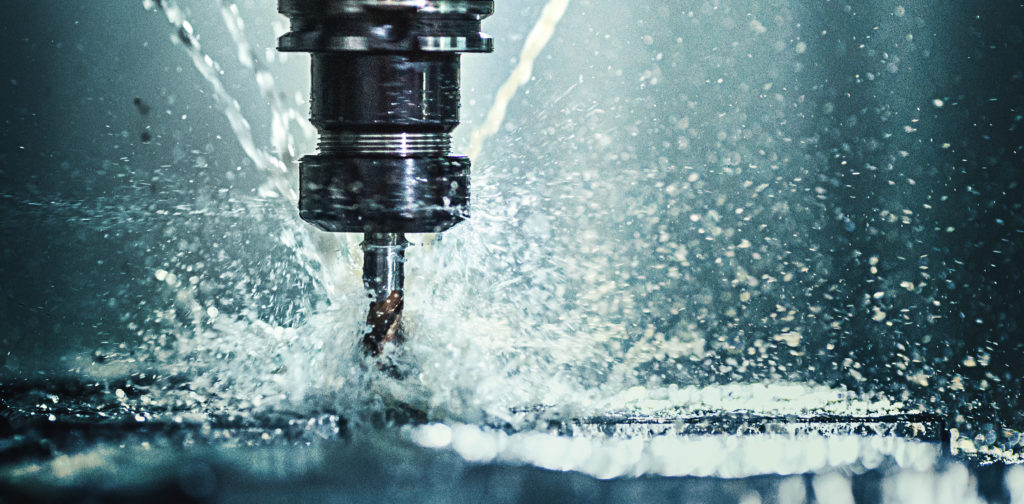In today’s highly automated and precision-driven world, Computer Numerical Control (CNC) machining plays a pivotal role in transforming raw materials into intricate parts used across nearly every industrial sector. From aerospace to automotive, medical devices to energy infrastructure, CNC machining has revolutionized manufacturing by providing unmatched accuracy, repeatability, and efficiency.
This blog explores how CNC machining for industrial applications has evolved and where it stands as an indispensable tool in modern manufacturing.
What Is CNC Machining?
CNC machining is a subtractive manufacturing process where pre-programmed software controls the movement of factory tools and machinery. These tools can include lathes, mills, routers, and grinders, all directed by digitized instructions to remove material from a workpiece, shaping it into a finished product with extraordinary precision.
Unlike manual machining, CNC processes do not rely on human operators to guide the cutting tools. Instead, they follow computer-aided design (CAD) and computer-aided manufacturing (CAM) files to produce highly consistent parts, whether it’s a single prototype or a batch of thousands.
The Industrial Power of CNC Machining
The real strength of CNC machining lies in its industrial versatility. Here’s how CNC machining is used across a wide range of industrial applications:
1. Aerospace Industry
CNC machining is foundational in aerospace due to its ability to meet tight tolerances and complex geometries required for aircraft components. Parts like turbine blades, landing gear components, and engine casings must be machined from high-strength materials such as titanium or Inconel, which CNC machines handle efficiently.
Key benefits for aerospace applications include:
- ±0.0001” tolerances
- High-performance material compatibility
- Multi-axis machining for complex shapes
The precision of CNC machining for industrial applications in aerospace ensures reliability in flight-critical parts where failure is not an option.
2. Automotive Manufacturing
In the automotive industry, CNC machining is used to manufacture both standard and custom parts with speed and consistency. From cylinder heads and transmission housings to custom dashboards and brackets, CNC machining is integral in both production and prototyping.
Applications in this industry include:
- Mass production of engine components
- Rapid prototyping for concept cars
- Fabrication of jigs and fixtures for assembly lines
CNC machining’s ability to quickly produce identical parts in high volumes is a driving force behind just-in-time manufacturing models in automotive plants worldwide.
3. Medical Device Industry
The medical field relies heavily on CNC machining for producing surgical instruments, orthopedic implants, and diagnostic equipment. CNC machining for industrial applications in this space must adhere to strict regulatory standards (such as FDA compliance in the U.S.) and hygienic material requirements.
Key CNC applications in medical manufacturing include:
- Bone screws, plates, and joint replacements
- Custom surgical tools with ergonomic features
- Parts for imaging equipment and diagnostic tools
With micromachining capabilities and biocompatible material processing, CNC ensures that patient-specific devices are manufactured to exact specifications.
4. Oil, Gas, and Energy
From upstream drilling equipment to downstream refining parts, the energy sector depends on CNC machining to produce high-durability components. Materials often include corrosion-resistant metals like stainless steel and Monel.
Typical use cases:
- Valve bodies and flanges
- Pump components and seals
- Precision parts for wind and hydro turbines
The durability and reliability of CNC-machined parts help ensure safety and performance in harsh environmental conditions.
5. Industrial Equipment and Robotics
CNC machining powers the creation of industrial automation systems and robotic parts. Because robotics often involve tight integration between moving components, the demand for dimensional accuracy and consistency is high.
Applications include:
- Robotic arms and joint mechanisms
- Conveyor system components
- Gears, cams, and custom brackets
The growing trend of Industry 4.0—automation and smart factories—further highlights the increasing importance of CNC machining for industrial applications.
Key Advantages of CNC Machining in Industrial Settings
Let’s take a closer look at why CNC machining continues to be a go-to solution for industrial manufacturers:
1. Precision and Repeatability
CNC machines can operate at micron-level accuracy, ensuring every part meets exact specifications. Whether you’re making ten or ten thousand units, the first and last part will be identical—an essential feature for industries like aerospace and medical.
2. Scalability and Speed
CNC machining bridges the gap between prototyping and mass production. Once a design is finalized and programmed, it can be reproduced quickly with minimal downtime between runs.
3. Complex Geometry
Advanced CNC systems with multi-axis capabilities (like 5-axis machining) can create complex geometries that are impossible with traditional methods. This enables innovation in component design without manufacturing constraints.
4. Material Versatility
CNC machines can handle a vast array of materials—aluminum, steel, titanium, plastics, ceramics—making them suitable for nearly every industrial sector.
5. Safety and Automation
Modern CNC systems can run unattended, reducing operator risk and allowing continuous 24/7 production. They also reduce the likelihood of human error, enhancing product quality.
Emerging Trends in CNC Machining for Industrial Applications
The CNC landscape is evolving quickly, especially with advancements in automation, data analytics, and integration with other technologies.
1. CNC and AI Integration
Artificial intelligence is being integrated into CNC systems to optimize tool paths, reduce cycle times, and predict maintenance needs. AI-driven CNC machining is improving quality control through automated inspection and adaptive machining strategies.
2. Digital Twin Technology
A digital twin is a virtual replica of a physical machine or process. When integrated with CNC systems, it allows real-time monitoring, simulation, and process optimization before actual manufacturing begins—saving time and materials.
3. Sustainable Manufacturing
Sustainability is becoming a central concern in industrial manufacturing. CNC machining supports sustainability by reducing material waste (due to precision) and increasing the lifespan of components via high-quality fabrication.
4. Hybrid Manufacturing
Combining additive manufacturing (3D printing) with CNC machining allows for greater design freedom. A part can be 3D printed roughly to shape and then precision-machined to final tolerances, resulting in cost-effective and efficient production cycles.
CNC Machining as the Backbone of Industrial Innovation
CNC machining for industrial applications is more than just a manufacturing method—it is a cornerstone of modern industry. Its precision, flexibility, and compatibility with advanced technologies make it essential for producing everything from aerospace components to medical implants.
As industries continue to innovate and demand higher performance from their products, CNC machining will remain a key enabler. Its ability to adapt to digital transformation trends, integrate with AI and automation, and deliver consistent quality at scale ensures its relevance for decades to come.
Whether you’re a manufacturer, product designer, or engineer, understanding and leveraging CNC machining for industrial applications can help you stay competitive in a fast-evolving market.





